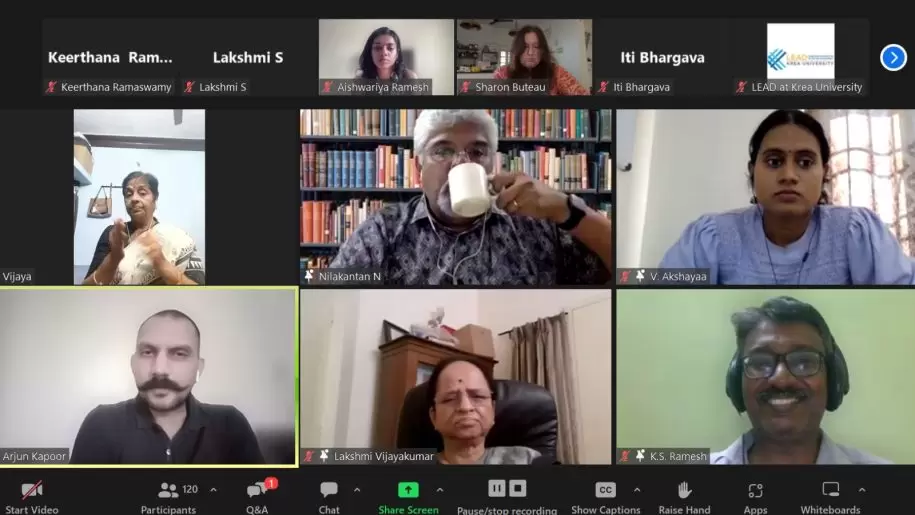Partners: Banyan Academy of Leadership in Mental Health (BALM)
Adolescent suicides pose a significant public health challenge in India, necessitating a concerted effort to understand and address the underlying factors and implement preventive measures. The lack of comprehensive reporting and analysis of not only the occurrences but also the underlying socio-economic factors exacerbates the issue. Stigma and shame surrounding suicides contribute to under-reporting, hindering the implementation of effective preventive measures. Access to accurate data and resources is imperative for addressing this pressing public health challenge.
In this webinar, researchers from LEAD at Krea University and the Banyan Academy of Leadership in Mental Health (BALM) presented key findings from a systematic review to identify prevalent risk factors contributing to suicidal behaviour among adolescents in India. This was followed by a discussion between a panel of experts from healthcare, education and representatives from civil society.
Featured Speakers
Welcome and Introduction:
- Dr Lakshmi Sankaran, Deputy Director, BALM
Opening Remarks:
- Dr Lakshmi Vijayakumar, Founder, SNEHA; HOD, Voluntary Health Services, Chennai; Hon. Associate Professor, University of Melbourne; Member, WHO Network on Suicide Prevention & Research
A Snapshot of the Findings:
- Sharon Buteau, Executive Director, LEAD at Krea University
- Aishwarya Ramesh, Senior Research Associate, BALM
Panel Discussion with Sector Experts:
- Arjun Kapoor, Programme Manager & Research Fellow, Centre for Mental Health Law & Policy, Indian Law Society, Pune
- Nilakantan Nagarathnam, Governing Board Member, Sports, The Madras Seva Sadan
- V. Akshayaa, Youth Representative
- Moderator: Dr K.S. Ramesh, Deputy Director, BALM
Special Remarks:
- Dr K.V. Kishore Kumar, Director, BALM Q&A and Discussion Closing Remarks
Experts engaged in discussions on evidence-based methods to identify risk factors and predictive pathways. Additionally, they explored strategies for filling knowledge and data gaps to address this critical issue. More details forthcoming.
Resources:
Watch the session recording here.

